Tolkien and Attila
 What follows may well be total coincidence.
What follows may well be total coincidence.
J.R.R. Tolkien wrote The Lord of the Rings over the course of many years of his life, a life shaped in part by his experience as a young man fighting in the trenches of World War One against the Germans. Or, as they were sometimes called at the time, the Hun.
The Germans had been equated with Huns for over forty years by then. It had begun as a term of abuse in French newspapers, but some Germans adopted the comparison with pride. Kaiser Wilhelm II notoriously inspired his soldiers by linking them to the historical Huns and their great leader, Attila.
Now so far as I know Tolkien made few direct references to Attila in his writing. He refers in a letter to attending a lecture his son Christopher gave about Attila, and to being thrilled by a reference to the etymology of the name — from ‘Atta,’ ‘father,’ so meaning something like ‘little father.’ And I understand in The Legend of Sigurd and Gudrun, Attila makes an appearance, as he did in the original poems on which Tolkien based his story. But I’ve begun to wonder if the idea of the Huns didn’t have a bit more of an influence on Tolkien than that.
I want to be clear in what follows that I’m not talking about conscious influence. I don’t think that Tolkien had the history of the Huns actively on his mind at any point as he wrote. What I’m wondering is whether that history unconsciously suggested certain plot patterns to him that manifested in his writings.
 The Huns entered European history in the fourth century, one of a number of “barbarian” tribes drifting westward out of Asia. Other peoples had settled in Europe more or less peacefully, with some, like the Visigoths, establishing themselves as at least occasional allies or even client kingdoms of Rome. The Huns were more fractious, attacking the Eastern Empire — Rome then being divided between East and West — late in the fourth century. In the mid-fifth-century, Attila gathered control of the Huns, again attacked the Eastern Roman Empire, built an empire of his own north of Roman lands, and then, in 451, struck westward into Gaul, claiming that he intended to ‘recapture’ the Visigoths, who he said had once been vassals of the Huns. Leading a vast army built from all the people of his empire, Attila got as far as what is now Orléans, where he had to turn back in the face of a combined force of Romans, Visigoths, Franks, and other barbarians, led by the Roman general Flavius Aetius.
The Huns entered European history in the fourth century, one of a number of “barbarian” tribes drifting westward out of Asia. Other peoples had settled in Europe more or less peacefully, with some, like the Visigoths, establishing themselves as at least occasional allies or even client kingdoms of Rome. The Huns were more fractious, attacking the Eastern Empire — Rome then being divided between East and West — late in the fourth century. In the mid-fifth-century, Attila gathered control of the Huns, again attacked the Eastern Roman Empire, built an empire of his own north of Roman lands, and then, in 451, struck westward into Gaul, claiming that he intended to ‘recapture’ the Visigoths, who he said had once been vassals of the Huns. Leading a vast army built from all the people of his empire, Attila got as far as what is now Orléans, where he had to turn back in the face of a combined force of Romans, Visigoths, Franks, and other barbarians, led by the Roman general Flavius Aetius.
For much of the past fifteen hundred years, that battle, the Battle of the Catalaunian Plains, was considered one of the most important conflicts of western history. That judgment’s been challenged over the past century or so; Rome won, but would things have been that different had they lost? The very next year, Attila invaded Italy, where Flavius Aetius seems again to have blocked his route south before disease among Attila’s troops — and a diplomatic mission led by Pope Leo I — forced the Huns to retreat northward. The year after that, Attila was dead, and his empire broke up. Then Aetius was killed by his Emperor, Valentinian III, in 454; then Valentinian died the year after that, and it was only about twenty years later that the rulership of what was left of the Western Roman Empire passed into barbarian hands. In other words, defeating Attila hadn’t saved Rome. Conversely, if Attila had won on the Catalaunian Plains, was it any more likely that his cobbled-together empire could have outlasted his death? If no, how significant was the battle, after all?
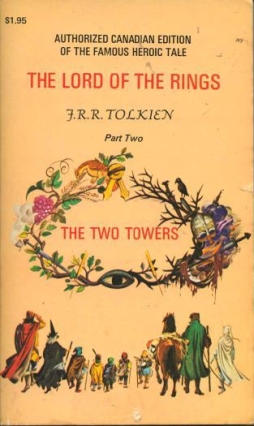 It’s a fair question, but one thing is clear: Attila terrified people even many years after he died. One story, certainly false, has him conquering the city of Troyes; the bishop of the city confronts him, identifying himself as a man of God, to which Attila retorts: “And I am Attila, the Scourge of God.” For many years that was how the Hun invasions were seen: as a divine scourge. Even today in many places the name Attila is a byword for brutality and violence — not in Hungary, though, where he’s more warmly regarded.
It’s a fair question, but one thing is clear: Attila terrified people even many years after he died. One story, certainly false, has him conquering the city of Troyes; the bishop of the city confronts him, identifying himself as a man of God, to which Attila retorts: “And I am Attila, the Scourge of God.” For many years that was how the Hun invasions were seen: as a divine scourge. Even today in many places the name Attila is a byword for brutality and violence — not in Hungary, though, where he’s more warmly regarded.
To get back to Tolkien: he loved the Gothic language, and I presume would have known a fair bit about Attila and how Attila’s invasion was portrayed in various historical sources. Beyond history, Attila’s invasions also left a mark on the literatures that developed after his death and after the collapse of Rome, as Tolkien would also have known well; memories of the Hun invasions echoed on in legends, myth, and poetry. Sometimes Attila was pulled into stories he had nothing to do with, as for example the tale that developed of Saint Ursula and the Eleven Thousand Virgins. He’s mentioned in the Old English poem “Widsith.” And he has a significant role in the medieval German epic the Niebelungenlied, the story of a cursed ring.
I’ve been reading up on Attila lately for a projected article elsewhere. And as I did I realised the story of the Hun invasion into Gaul seemed very familiar. Again, it may be coincidence. But …
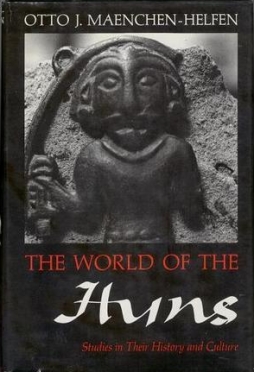 Attila’s stated reason for invading Gaul was to conquer the Visigoths, who had established a kingdom west of Roman territory. The Visigoths had come out of the east a little while before the Huns; they’d established themselves as on-again off-again foederati of the Romans, allies who were theoretically compelled to furnish troops at Rome’s request. Essentially, the Visigoths were a client kingdom of Rome when it suited them, an enemy when the Visigoths saw more advantage in war. Aetius had actually spent most of the decades before the Hun invasion battling the fractious Visigoths; when Attila invaded Gaul, not only did Aetius have to overcome his own dislike for his former enemies, he had to hope they would agree to answer his ambassador’s call for them to come out of their homeland to join his forces and fight Attila in Gaul.
Attila’s stated reason for invading Gaul was to conquer the Visigoths, who had established a kingdom west of Roman territory. The Visigoths had come out of the east a little while before the Huns; they’d established themselves as on-again off-again foederati of the Romans, allies who were theoretically compelled to furnish troops at Rome’s request. Essentially, the Visigoths were a client kingdom of Rome when it suited them, an enemy when the Visigoths saw more advantage in war. Aetius had actually spent most of the decades before the Hun invasion battling the fractious Visigoths; when Attila invaded Gaul, not only did Aetius have to overcome his own dislike for his former enemies, he had to hope they would agree to answer his ambassador’s call for them to come out of their homeland to join his forces and fight Attila in Gaul.
Now compare this with The Lord of the Rings, and specifically with Gondor and Rohan: an empire, the traditional source of culture and civilization, in decline. A younger and perhaps more vigorous culture comes out of the east, and settles into an uneasy alliance just beyond their borders. Then, many years later, another, more terrible, force also comes from the east; a frightful horde. Only a desperate alliance of the old empire and the younger culture can stop them. If, that is, the younger culture will respond to the old empire’s need, and leave their homes to fight the coming darkness.
As it happens, the Visigoths agreed, joined Aetius and the Western Roman army, and their assembled forces met the Huns just before the walls of the city of Aurelianum (now known as Orléans). According to one version of what happened, the Huns arrived, saw the allies garrisoning the city, and turned back. Another version has the Huns arriving first, and besieging the city. In this account, the siege went on, the plight of the inhabitants grew more and more desperate, until just as the Huns actually breached the walls of the city the allied armies were seen coming, and the Huns were set to flight.
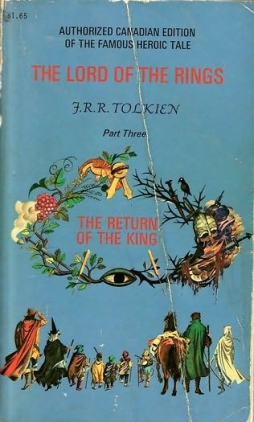 One way or the other, the Romans and Visigoths pursued the Huns, and on the Catalaunian Plains outside of Troyes the final battle erupted. They fought from mid-afternoon to nightfall, with no clear victor. The Huns were forced back into their camp, but both Aetius and the Visigoth king seemed lost. Aetius, in fact, had found his way behind enemy lines, and had to walk back to the Visigothic encampment hoping none of the Huns recognised him. It wasn’t until the morning that the Visigoths found the body of their fallen king, Theodoric.
One way or the other, the Romans and Visigoths pursued the Huns, and on the Catalaunian Plains outside of Troyes the final battle erupted. They fought from mid-afternoon to nightfall, with no clear victor. The Huns were forced back into their camp, but both Aetius and the Visigoth king seemed lost. Aetius, in fact, had found his way behind enemy lines, and had to walk back to the Visigothic encampment hoping none of the Huns recognised him. It wasn’t until the morning that the Visigoths found the body of their fallen king, Theodoric.
To carry the story further, then: the younger culture joins the older, and turns back the invaders just as the walls of a great city are breached. But in battle, though the conflict is won, the old king of the younger culture dies.
Again, this may not mean very much. The device of having an army rushing to the rescue of a besieged city and arriving just in the the nick of time isn’t that distinctive. But I was struck by the sequence of events. And it’s amusing to note the alliteration of the names: Theoden, Theodoric; Aragorn, Aetius.
Who was this Flavius Aetius? He was the commander of the Armies of the West — the Armies of the Western Roman Empire. After his death he was called ‘The Last of the Romans’ for the way in which he seemed to incarnate the traditional virtues of Rome (though other people have been given that title as well). Aetius, then, was seen as an image of his ancestors’ nobility, the last incarnation of the virtues of his lineage. And, at the Battle of the Catalaunian Plains, he led his people in a struggle that, it was soon held, marked the end of an age of the world. What came before, the Roman Empire, did not last; but, said chroniclers, at least Europe was preserved from the terrible Huns.
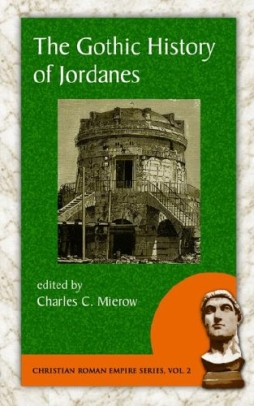 It seems as well that for many near-contemporaries the Battle of the Catalaunian Plains was notable precisely because it was a great alliance of forces. That is, where Attila had his Huns and other people who were (to all appearances) entirely under his rule, the Roman-Visigothic alliance represented a coming-together of different peoples. That appears to have then been unusual, though of course it would harmonise with Tolkien’s own experience in the First and Second World Wars.
It seems as well that for many near-contemporaries the Battle of the Catalaunian Plains was notable precisely because it was a great alliance of forces. That is, where Attila had his Huns and other people who were (to all appearances) entirely under his rule, the Roman-Visigothic alliance represented a coming-together of different peoples. That appears to have then been unusual, though of course it would harmonise with Tolkien’s own experience in the First and Second World Wars.
And then we can look at the guys on the other side, too. I started off this post reflecting on the association the word “Hun” would have had for Tolkien. I wonder if surviving descriptions of Huns — basically, anti-Hun propaganda writings — may have influenced him. Here’s Tolkien in a letter, describing orcs: “…they are (or were) squat, broad, flat-nosed, sallow-skinned, with wide mouths and slant eyes; in fact degraded and repulsive versions of the (to Europeans) least lovely Mongol-types.” I recognise that this passage has relevance to various discussions about race and The Lord of the Rings; I want here to focus specifically on how it may relate to historical depictions of the Huns.
Compare to the historian Jordanes describing Attila: “He was short of stature, with a broad chest and a large head; his eyes were small, his beard thin and sprinkled with grey; and he had a flat nose and a swarthy complexion, showing the evidences of his origin.” Jordanes is actually following an earlier historian, Priscus, who saw Attila in person and described him as follows: “He was short of stature, broad-chested, with a large head, small eyes, thin beard flecked with grey, snub nose, and the repulsive complexion of his forefathers.”
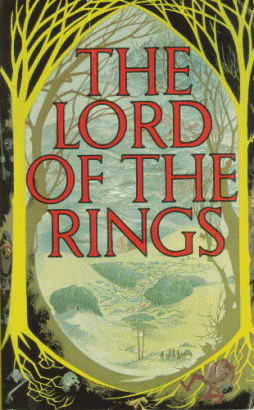 What’s intriguing to me is not just that so many characteristics are the same, but that the order in which they’re given is fairly close; height, width, (other matter in Jordanes and Priscus,) nose, skin (other matter in Tolkien). I note, incidentally, that I found the quotation from Priscus in John Man’s book Attila the Hun; I’m not sure who did the translation. Man noted that “repulsive” is a translation of teter, a variant of taeter, or “foul, hideous, noisome, repulsive.” Earlier translations, with no linguistic basis, often used “swarthy” or “dark.”
What’s intriguing to me is not just that so many characteristics are the same, but that the order in which they’re given is fairly close; height, width, (other matter in Jordanes and Priscus,) nose, skin (other matter in Tolkien). I note, incidentally, that I found the quotation from Priscus in John Man’s book Attila the Hun; I’m not sure who did the translation. Man noted that “repulsive” is a translation of teter, a variant of taeter, or “foul, hideous, noisome, repulsive.” Earlier translations, with no linguistic basis, often used “swarthy” or “dark.”
(Jordanes, I might note, really didn’t like the Huns. Consider, if you will, whether this description sounds like it applies to men or orcs: “They made their foes flee in horror because their swarthy aspect was fearful, and they had, if I may call it so, a sort of shapeless lump, not a head, with pin-holes rather than eyes. Their hardihood is evident in their wild appearance, and they are beings who are cruel to their children on the very day they are born. For they cut the cheeks of the males with a sword, so that before they receive the nourishment of milk they must learn to endure wounds. Hence they grow old beardless and their young men are without comeliness, because a face furrowed by the sword spoils by its scars the natural beauty of a beard. They are short in stature, quick in bodily movement, alert horsemen, broad shouldered, ready in the use of bow and arrow, and have firm-set necks which are ever erect in pride. Though they live in the form of men, they have the cruelty of wild beasts.”)
Tolkien’s reference to “Mongol-types” may be relevant in this context as well. Not much is known about the Huns, who came out of the east past the Sea of Azov. For much of Tolkien’s life it was believed that they were descendants of a people called the Xiongnu, a nomadic people on the border of China who were believed to have migrated westward and become known as Huns. In the 1930s it was pointed out that actual evidence of a connection between Huns and Xiongnu had never been found. Learned opinion turned against the theory, but I gather it’s been making a comeback lately. At any rate, while the Huns certainly weren’t themselves Mongols (though Gibbon declared they were), the Huns do seem to have come from the same steppes that later produced Turks and Mongols.
 Now, while there are some possible similarities, there are also major differences between history and fiction. Perhaps most significantly, there’s clearly no direct counterpart to Attila in The Lord of the Rings. There’s no great leader of the Orc horde; only Sauron, lurking in Mordor. As I say, I don’t want to argue here for a direct correspondence, and freely admit it all may be coincidence. But if there is any connection, if Tolkien’s creative mind was playing about with the story of Attila, it’s interesting that Tolkien had a figure of active evil ready to hand, one of the great villains of western European legendry; and chose not to use him, or to make a figure of evil suggested by him.
Now, while there are some possible similarities, there are also major differences between history and fiction. Perhaps most significantly, there’s clearly no direct counterpart to Attila in The Lord of the Rings. There’s no great leader of the Orc horde; only Sauron, lurking in Mordor. As I say, I don’t want to argue here for a direct correspondence, and freely admit it all may be coincidence. But if there is any connection, if Tolkien’s creative mind was playing about with the story of Attila, it’s interesting that Tolkien had a figure of active evil ready to hand, one of the great villains of western European legendry; and chose not to use him, or to make a figure of evil suggested by him.
There are other massive differences between the Attila story and Tolkien’s Battle of Pelennor Fields. For example, Attila’s invaders got away. Even though Aetius had the upper hand, the old general still didn’t really trust the Visigoths and Franks and other barbarians who were nominally on his side, and he convinced Theodoric’s son to return home to secure his inheritance rather than wipe out the Huns. Aetius believed that the balance of power in Gaul was better served with the Huns still a credible threat. The alliance broke up, the Huns retreated, and noody had to drop anything into any volcano.
Although, that said, I will note one more odd coincidence: Attila won the loyalty of his people in part because he claimed to hold a magic sword. This sword, called by Roman historians the Sword of Mars, had been a treasure of earlier Hun kings. The story has it that a herdsman found the sword when its partly-buried blade cut one of his heifers; he took the sword to Attila, who proclaimed that the return of the lost sword of his forefathers showed that he was destined to win wars and rule the world.
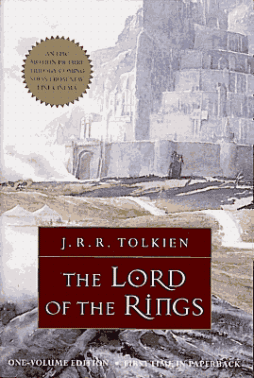 As I say, the seeming similarities could be coincidence. There is no one historical source that I know of that presents all the elements I’ve found in the way that I’ve found them. Still, it seems to me possible that the Attila stories and legends became one of the seeds out of which grew a part of The Lord of the Rings. It’s clear, I think, that there’s no conscious influence. What I want to suggest is that at an unconscious level Tolkien creatively played on the images, themes, and ideas of the story of Attila as he had found it in the medieval texts. Those writings were among those that sparked his imagination. So when he came to tell his great tale, they helped to shape the story he wrote. If so, I find it interesting because it may suggest something of how one man’s creative fiction-writing faculty used the matter of history to find themes for a great tale of his own.
As I say, the seeming similarities could be coincidence. There is no one historical source that I know of that presents all the elements I’ve found in the way that I’ve found them. Still, it seems to me possible that the Attila stories and legends became one of the seeds out of which grew a part of The Lord of the Rings. It’s clear, I think, that there’s no conscious influence. What I want to suggest is that at an unconscious level Tolkien creatively played on the images, themes, and ideas of the story of Attila as he had found it in the medieval texts. Those writings were among those that sparked his imagination. So when he came to tell his great tale, they helped to shape the story he wrote. If so, I find it interesting because it may suggest something of how one man’s creative fiction-writing faculty used the matter of history to find themes for a great tale of his own.
I don’t want to overstate any of this. There are so many elements to The Lord of the Rings, so many aspects of history alone that contribute to the tale or seem to harmonise with it in some powerful fashion. It so happens that I’ve been reading about Attila lately, and it may well be that I’m only projecting one story onto another — that Tolkien made something so close to medieval storytelling that it can’t help but echo actual medieval narratives. At the least, though, I find it interesting that in so many ways the two things seem to align so neatly. I also find it interesting how very different the stories are. Similar or not, it’s clearly impossible to imagine The Lord of the Rings being extrapolated out of the surviving historical matter. It is a creation, or sub-creation, all its own.
Matthew David Surridge is the author of “The Word of Azrael,” from Black Gate 14. His ongoing web serial is The Fell Gard Codices. You can find him on facebook, or follow his Twitter account, Fell_Gard.
A deep and interesting article, your best yet.
[…] Black Gate (Matthew David Surridge) on Tolkien and Attila. […]
Great piece. You’ve certainly identified enough parallels to warrant this type of speculation about the Huns as an influence. There’s a lot of published Tolkien criticism out there and I’m not sure whether this connection has ever been made before; if not, I’d consider submitting to one of the journals.
This was great — as I’ve come to expect from Matthew!
Intriguing stuff, and an entirely new connection to me.
It took me a while to remember the names of the earliest individual ancestors of the Rohirrim, but once I remembered Vidumavi and her father Vidugavia, I poked around the internet. Apparently some stray neuron in my brain remembered a Visigoth connection, but I couldn’t reconstruct it until a Google search turned up this piece on Tolkien’s use of Gothic names: http://middle-earth.xenite.org/2011/11/17/how-many-gothic-names-did-tolkien-use-in-middle-earth/ . And there are Vidugavia and Vidumavi, real historical figures with names Latinized from Gothic, then borrowed entire into the leadership of Tolkien’s Wainriders.
It doesn’t clinch the Hun connection, but it certainly looks like circumstantial support to me.
Thanks for the comments, everyone!
Brian, I like the idea of submitting this somewhere, but I don’t really know what journal to approach. Where would you recommend?
Sarah, that’s a great link. Tolkien’s names are so powerful and fascinating — it always stuns me how creatively he played about with such a large base of knowledge. Thanks!
Hi Matthew, you might consider something like Mythlore or Amon Hen.
[…] You can read the announcement, including the complete list on contributors, here, and Matthew’s original article is here. […]